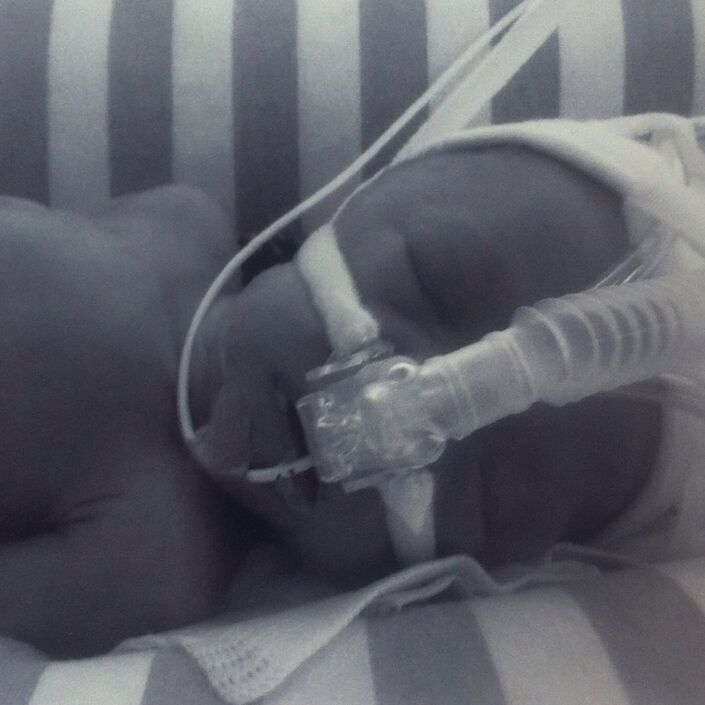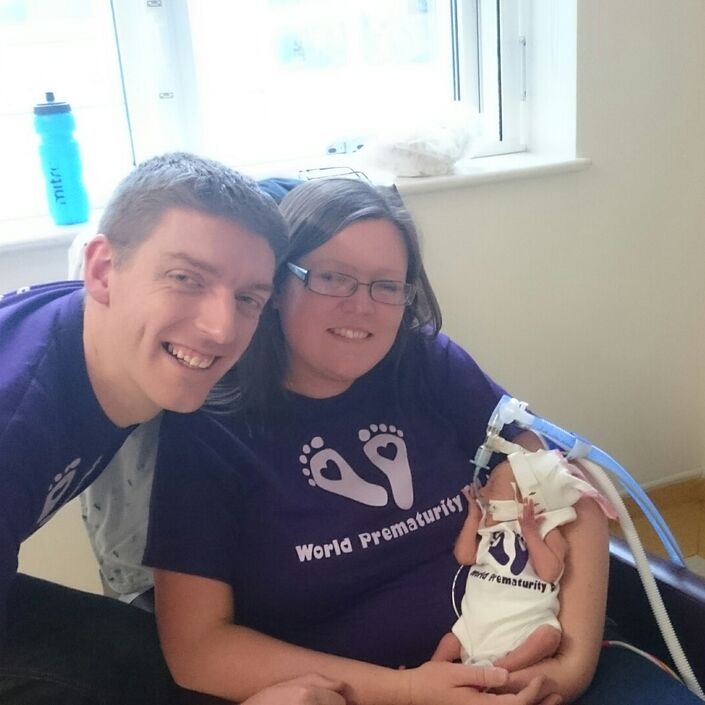We arrived at Queen Charlotte's and Chelsea Hospital (QCCH), with blue lights flashing and sirens sounding, after an hour journey through London from Basildon Hospital one week before our son was born.
It had been decided that it was better to get Mum to QCCH prior to birth as Basildon could not give long term care to such a premature baby. Within minutes of arriving we were seen by a consultant who brought the severity of the situation home with a frank and honest chat about outcomes to very premature babies.
"Baby" was born on 2 February 2016 just after 9am, 14 weeks early and weighing 844g.

This time was very scary and worrying for all of us. I was rushing to get there from 60 miles away and Baby D, as he was known, was taken up to the Neonatal Intensive Care Unit (NICU). There the staff worked fantastically to look after our precious son.
When I arrived my first thoughts were: 'What now? I know Mum is OK, but what about my son?" We were taken through the daunting path to NICU, given clothing, hand washing and infection controls. This was not an easy place to enter!
Once in the NICU the nurse looking after Baby D explained the care he was receiving and the multitude of monitors and tubes. There were lights and alarms sounding from all the occupied incubators in the room, with six babies being tended to.
A big concern was where we would stay. We wanted to be at the NICU 24/7. The admin staff managed to arrange one of the Ronald McDonald Charity rooms in the hospital for us to stay in (QCCH has 10 charity funded rooms with a communal kitchen and lounge). This allowed us to be at QCCH full-time. There was even a car parking pass allowing significantly cheaper parking on hospital grounds. All these helped to ease our stay and allowed us to focus on Baby D.
Baby D went through good and bad days at QCCH. For instance he required several blood transfusions (young babies cannot create sufficient good blood). He also had difficulty breathing, twice needing to be intubated to allow air into his lungs, and then needing continuous positive air pressure (CPAP). As well as this, Baby D was fed via a tube, starting at 1ml every 4 hours, slowly building up to 34ml by the time we left QCCH. Throughout his stay regular testing was carried out to spot when there was a need for ultra-violet treatment for jaundice.

As the milk bank was located in the same area as our room we passed it many times. The bank supplies milk to any baby that requires it (from any hospital requesting). Whilst at QCCH, Mum could not produce enough milk to meet the demands of Baby D. We had many collections over our stay and are now close to the year end point (the hospital will not use after that age).
For the next 39 days we lived and breathed the NICU, watching in awe at the staff's skill, dedication and care, not only for the babies but for the parents and also for each other. This is a special place with very special people. We now fully understand why nurses are referred to as angels.

During this period "Baby D" became James.
At 39 days we were transferred to our local hospital in Basildon, a level below QCCH in capability for long term support of young babies. The care continued with all of the ups and downs that intense medical units have, eventually we were able to take James home.
James now has regular visits to the NHS for check-ups and monitoring so we start the next part of his life.
God bless all at the people involved in neonatal care.

If you have been affected by any of the issues mentioned in this post and would like support, view our online support pages.


